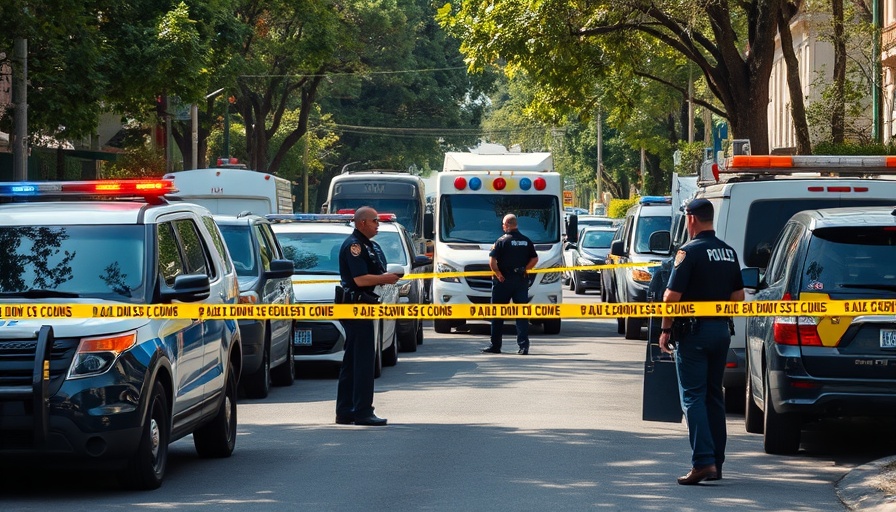
A Stabbing Rampage in Washington D.C.: What Really Happened?
On a startling day in Washington D.C., a troubling incident unfolded as a suspect, believed to be under the influence of drugs, carried out a wicked stabbing rampage. Six individuals were left injured, and the assailant turned the knife upon himself during the chaotic event. Detailing the situation, police reported that the suspect appeared to be in an 'altered mental state', prompting immediate inquiries into how such incidents can spiral out of control and the role that substances play in violent behavior.
The Underlying Crisis: Mental Health and Substance Abuse
The D.C. stabbing spree cannot be viewed in isolation; it mirrors broader issues concerning mental health and substance abuse in the United States. According to various health experts, the correlation between drug use and violent behavior has been the subject of research for years. For instance, the National Institute on Drug Abuse (NIDA) outlines that drugs can alter a person’s state of mind and inclinations, leading to unpredictable actions. As we delve deeper into the statistics, it reveals that a growing number of drug overdose deaths are often accompanied by violent crimes.
The Relevance of National News Stories in Today's Society
This event shines a light on the changing landscape of safety in urban America. Similar stories frequently dominate our national news. Analyzing trends from recent incidents, including the escalation in city crimes and substance-related violence, we glean an unsettling image: our societal fabric is fraying amidst growing despair. This reality is not monopolized by Washington D.C.; cities across the nation report increased incidents fueled by substance abuse, which raises a multitude of critical questions about our public safety frameworks.
Seeking Solutions: How Communities Are Responding
Communities have started coming together to implement preventive measures. In some areas, collaborative efforts between local governments and healthcare providers are focusing on addressing immediate mental health crises through enhanced outreach programs. Moreover, public health campaigns are now encouraging individuals to access treatment options for addiction before it spirals into something tragic. Engaging law enforcement in more active roles in mental health awareness and crisis management can also prove beneficial.
Learning from Tragedy: Improving Public Safety
As we reflect on this specific tragedy, it becomes evident that understanding what leads to such violence can potentially save lives in the future. It becomes paramount to analyze these unfortunate incidents critically and leverage the knowledge gained to create more resilient and informed communities. By fostering open dialogues about mental health, addressing addiction, and forming partnerships, we can build a proactive approach in tackling these pressing issues.
A Call to Action: Engage with Local Initiatives
As community members, it is essential to stay informed about local initiatives aimed at reducing violence and improving mental health resources. You can ask questions, volunteer your time, or lend support to local outreach programs focused on helping those affected by substance abuse. Staying aware of what's happening in your community through national news and engaging actively can foster a safer and more supportive environment for everyone.
 Add Element
Add Element  Add Row
Add Row 



Write A Comment